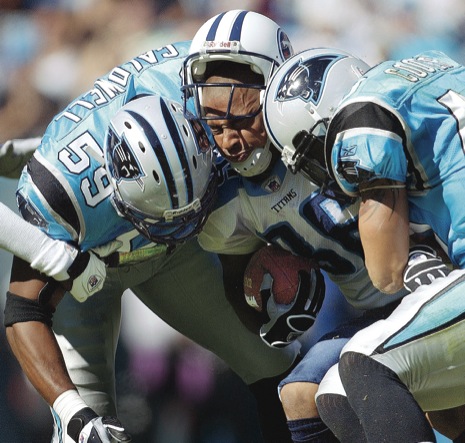Former Football Players Prone to Late-Life Health Problems?
Posted on
 Yes, according to a new study.
Yes, according to a new study.
Football players experience repeated head trauma throughout their careers, which results in short and long-term effects to their cognitive function, physical and mental health. University of Missouri researchers are investigating how other lifestyle factors, including diet and exercise, impact the late-life health of former collision-sport athletes.
The researchers found that former football players experience more late-life cognitive difficulties and worse physical and mental health than other former athletes and non-athletes. In addition, former football players who consumed high-fat diets had greater cognitive difficulties with recalling information, orientation and engaging and applying ideas. Frequent, vigorous exercise was associated with higher physical and mental health ratings.
“While the negative effects of repeated collisions can’t be completely reversed, this study suggests that former athletes can alter their lifestyle behaviors to change the progression of cognitive decline,” said Pam Hinton, associate professor of nutrition and exercise physiology. “Even years after they’re done playing sports, athletes can improve their diet and exercise habits to improve their mental and physical health.”
While the hitting cannot be eliminated in football, again, it comes down to lifestyle after the player leaves the game.
Again, diet and exercise play a role.
“Football will always be around, so it’s impossible to eliminate head injuries; however, we can identify ways to reduce the detrimental health effects of repeated head trauma,” Hinton said. “It’s important to educate athletes and people who work with athletes about the benefits of low-fat and balanced diets to help players improve their health both while playing sports and later in life. It’s a simple, but not an easy thing to do.”


